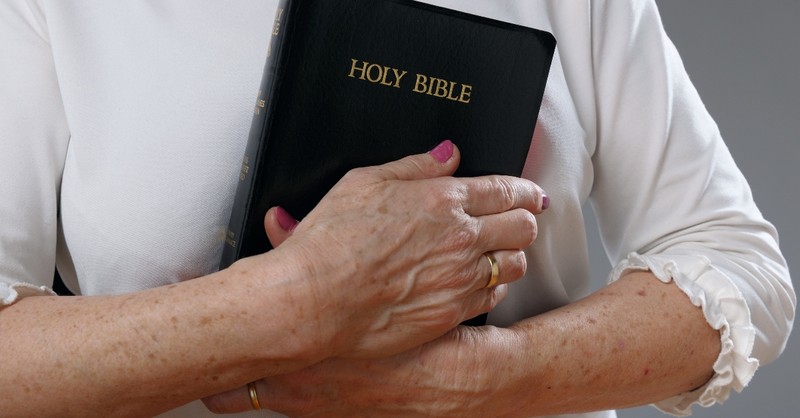
There is coming a time—although we don’t know when—when Jesus Christ will return, and when He does, those in Christ will be taken away. We have the assurance that both events (His return and our earthly departure) will happen based on 1 Thessalonians 4:13-17: “We do not want you to be uninformed, brothers, about those who are asleep that you may not grieve as others do who have no hope. For since we believe that Jesus died and rose again, even so, through Jesus, God will bring with him those who have fallen asleep. For this, we declare to you by a word from the Lord, that we who are alive, who are left until the coming of the Lord, will not precede those who have fallen asleep. For the Lord himself will descend from heaven with a cry of command, with the voice of an archangel, and with the sound of the trumpet of God. And the dead in Christ will rise first. Then we who are alive, who are left, will be caught up together with them in the clouds to meet the Lord in the air, and so we will always be with the Lord.”
We understand from this passage that it is not only the living who will be caught up but those who “have fallen asleep.” Fallen asleep is a spiritual euphemism for those who have previously died. Their bodies (being transformed into glorified bodies) will be resurrected on that day and will join the living on this ascent into heaven.
This visible, unsuspecting “catching up”—commonly referred to as the rapture in evangelical circles—was initially foretold by Jesus in Matthew 24:40-41: “Two men will be in the field; one will be taken and the other left. Two women will be grinding with a hand mill; one will be taken and the other left.”
While the word rapture was never used by Jesus or anyone else in the Bible, the term in the Latin Vulgate (rapiõ, “to seize, snatch away”) is close enough in meaning to the Greek word harpazõ, used in 1 Thessalonians 4:17 (“caught up”).
[NOTE: This article will NOT delve into the timing of the rapture or the tribulation. There are plenty of other resources to consult regarding those topics. One such source is Alan Bandy’s excellent, succinct essay at https://www.thegospelcoalition.org/essay/the-rapture-question/].
It is believed by most evangelicals that those “taken” during the rapture (both the living and the dead) are members of the Church, indicated by “in Christ”—those who previously appropriated the free gift of grace through faith in Jesus Christ.
This is the glorious hope believers have, of anticipating that day when Jesus will bodily return and take us, His Bride, back with Him. But what about those left behind? Why did Jesus leave them, and what will become of them?
Photo Credit: ©GettyImages/Boonyachoat

The Leftovers: Who They Are
[That term comes from the 2011 novel by Tom Perotta, “The Leftovers.”]
These leftovers are those who do not have a saving faith in Jesus Christ, who are not sealed with the Holy Spirit, the guarantor of eternal inheritance (2 Corinthians 1:22).
After the rapture, these unregenerated, Spiritless souls will be thrust into immediate and enormous emotional confusion, wondering where did all the believers go (some of whom may have been family members, friends, co-workers, etc.), wondering why they are still here, and what’s going to happen to them now? Some may even grapple with the fact that they thought they were “safe” because they were either “religious” or “good” people. They read their Bibles and prayed sometimes, maybe even went to church at Christmas and Easter. They performed good works (donated money or items to charities, volunteered at homeless shelters, etc.). They even might have, at some point, made a profession of faith. Come to find out, though, that neither their religiosity or goodness, nor their half-hearted attempts at spiritual disciplines, nor their “professions” count. They all were more insurance than genuine saving assurance.
Yes, sadly, these and others (atheists and agnostics, Satan-worshippers and cultists) are the people whom Jesus will—and must—leave behind, for only those who truly believed in His substitutionary death on the cross and subsequent resurrection from the dead will be saved. Those who rejected these essential beliefs, who thumbed their noses at God’s free gift of grace, will find themselves wandering in a world being torn apart by war, famine, chaos, strife, and unspeakable evil spawned by the Antichrist and False Prophet.
Photo Credit: ©GettyImages/Digital Vision.

The Leftovers: What Becomes of Them
There is much to fear in the aftermath of the rapture. The Holy Spirit will be restrained, and the Antichrist, once held in check, will have unimaginable power and control over the world. During this time, he will blaspheme God, His temple, and holy ones. He will make war with the saints, to overcome them (Revelation 3:6-7). He will seek “to change the times and the law” (Daniel 7:25). He will deny people the ability to buy or sell food and other commodities, unless they receive “the mark, that is, the name of the beast or the number of its name” (Revelation 13:17). He will take a seat in the newly built temple and reinstitute the sacrificial system, to demonstrate and boast “that he is God” (2 Thessalonians 2:4). Many will believe him to be so, and they will bow down in adulation to him.
But the Antichrist’s greatest power will be that of deception and the ability to lead people astray through rebellion against and denial of God by whatever means he can. “He will use all sorts of displays of power through signs and wonders that serve the lie, and all the ways that wickedness deceives those who are perishing. They perish because they refused to love the truth and so be saved. For this reason, God sends them a powerful delusion so that they will believe the lie and so that all will be condemned who have not believed the truth but have delighted in wickedness” (2 Thessalonians 2:9-12).
The Antichrist’s greatest desire will be to thwart those who would put their faith in Jesus Christ. And he will succeed, unfortunately, causing many to miss out on salvation and life everlasting with God in heaven. Thus, most of those left behind will be righteously consigned to life everlasting in hell for the ultimate sin of unbelief, and that is the greatest travesty of all.
Photo Credit: ©Getty Images/chameleonseye

The Leftovers: There Remains Hope
It is the belief of some scholars that there will be absolutely no chance for salvation after the rapture since those left behind had previously “refused to love the truth and so be saved” (2 Thessalonians 2:9-11). Those hard-hearted ones, they contend, heard the Gospel prior to the rapture but still rejected it. They will be under a “powerful delusion” to confirm their unbelief (2 Thessalonians 2:9-11). Thus, they likely will remain in their hard-hearted state after the rapture.
This may or may not be true. Others disagree completely, and there is no definitive way to know.
However, just as in the days prior to the rapture, there will still exist the opportunity for salvation afterward, for God’s desire will be then (as it always has been) that no one would perish, “but for all to come to repentance” (2 Peter 3:9). Whether this includes those who previously rejected the Gospel but later repent remains up for debate.
But hope remains regardless.
How will those left “hear” the Gospel, though, since all the believers—pastors, missionaries, and lay believers, alike—have been taken?
While, yes, all the believers were taken in the rapture, not so the millions of print Bibles and Biblical resources, much of it in print, audio, and video format. The Word of God in these various forms will be available for anyone seeking truth, comfort, and hope during those tumultuous times. Therefore, there remains the chance for them to “come to repentance” and to be saved, to become part of the Body of Christ and thus join Jesus in heaven.
How to be sure that you won’t be left behind. In other words, are you rapture ready?
Photo Credit: © Getty Images/phive2015

1. Confess & Believe
Salvation hinges on two simple but profound acts: public confession and internal belief (Romans 10:9-10). “If you declare with your mouth, ‘Jesus is Lord,’ and believe in your heart that God raised Him from the dead, you will be saved. For it is with your heart that you believe and are justified, and it is with your mouth that you profess your faith and are saved.”
Embracing Jesus as Lord and calling Him such surpasses all other “rulers” who might claim allegiance to your heart and life (such as the Romans did with Caesar). Therefore, Paul made it imperative that one must confess with their mouth that Jesus is Lord.
It is the same for us. We mustn’t confess that our country’s president or current king is Lord. Nor the Pope. Nor our favorite pastor or priest. Only Jesus. Jesus alone is the one who can be Lord in our hearts and lives, and this Paul says must be stated verbally, for all to hear. First, as a powerful proclamation of our faith, and secondly, as a bold witness.
Photo Credit: ©iStock/Getty Images Plus/BassittART

2. Keep Watch
“Therefore, keep watch, because you do not know on what day your Lord will come. But understand this: If the owner of the house had known at what time of night the thief was coming, he would have kept watch and would not have let his house be broken into. So, you also must be ready, because the Son of Man will come at an hour when you do not expect him” (Matthew 24:42-44).
Those found unprepared—like the five virgins who had not enough oil (symbolic of the Holy Spirit who imparts faith) in their lamps (symbolic of a person’s heart) in Matthew 25:1-13—will be sorely sorry, for they will be left behind when the Bridegroom arrives to take His Bride home. A person must have a saving faith in Jesus Christ and the Holy Spirit residing in them as their guarantee of salvation.
We are encouraged and warned, then, to keep watch over our faith walk, to not quench the Spirit, but to continue to grow in holiness and purity.
Photo Credit: © Getty Images/Wavebreakmedia

3. Be Faithful
“Who then is the faithful and wise servant, whom the master has put in charge of the servants in his household to give them their food at the proper time? It will be good for that servant whose master finds him doing so when he returns” (Matthew 24:45-46).
While we are saved by grace and not by works, we are saved “to do good works” (Ephesians 2:10). God expects us to put our spiritual gifts and talents to use for His kingdom and the good of His people. We are also to be faithful in the proclamation of the Gospel, as valued and trusted stewards (1 Thessalonians 2:4).
God expects us to be faithful in the long-term administration of these responsibilities, even when we feel burned out, taken advantage of, during trials, or even in the midst of being mistreated in the name of the Lord. Faithfulness is a key component and hallmark of a believer’s life. And such faithfulness in administering our “good works” will be rewarded at the judgment seat (Psalm 62:12; 1 Corinthians 3:8; Revelation 22:12).
And what believer doesn’t want to hear on that Day, “Well done, good and faithful servant. You have been faithful with a few things; I will put you in charge of many things. Come and share your master’s happiness” (Matthew 25:21, 23)?
Photo Credit: ©iStock/Getty Images Plus/pidjoe
Originally published Monday, 14 August 2023.









